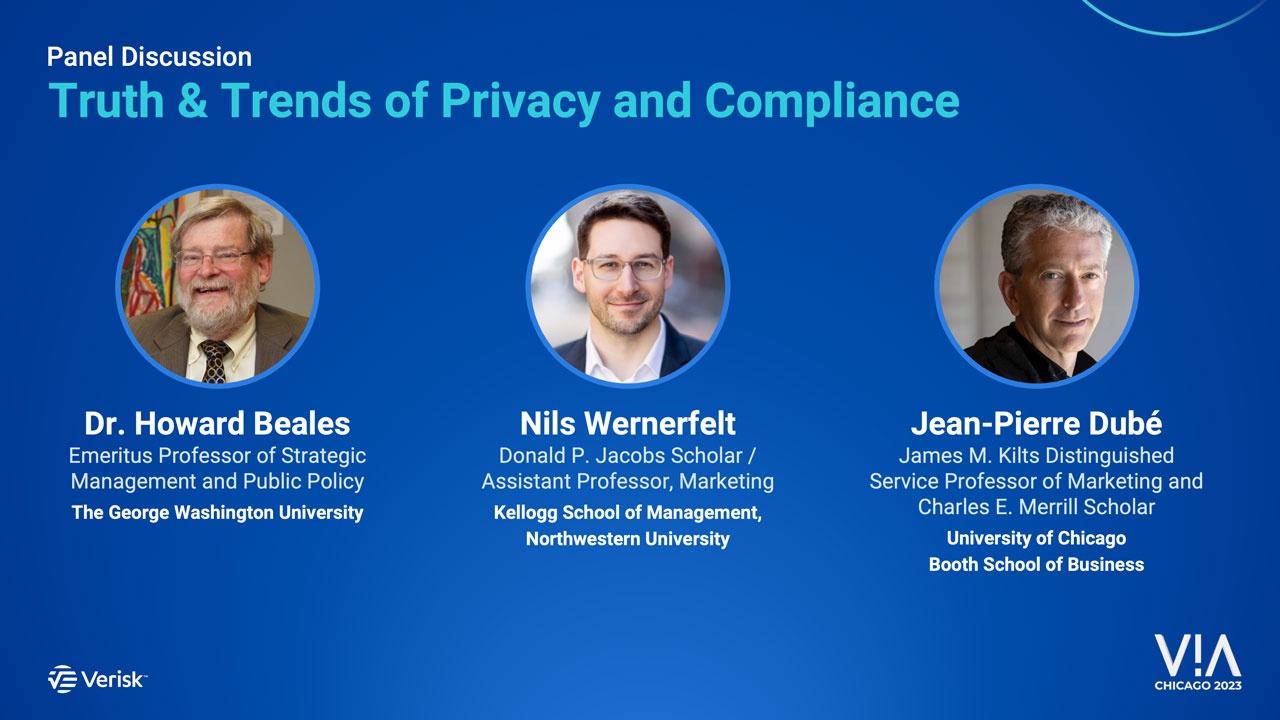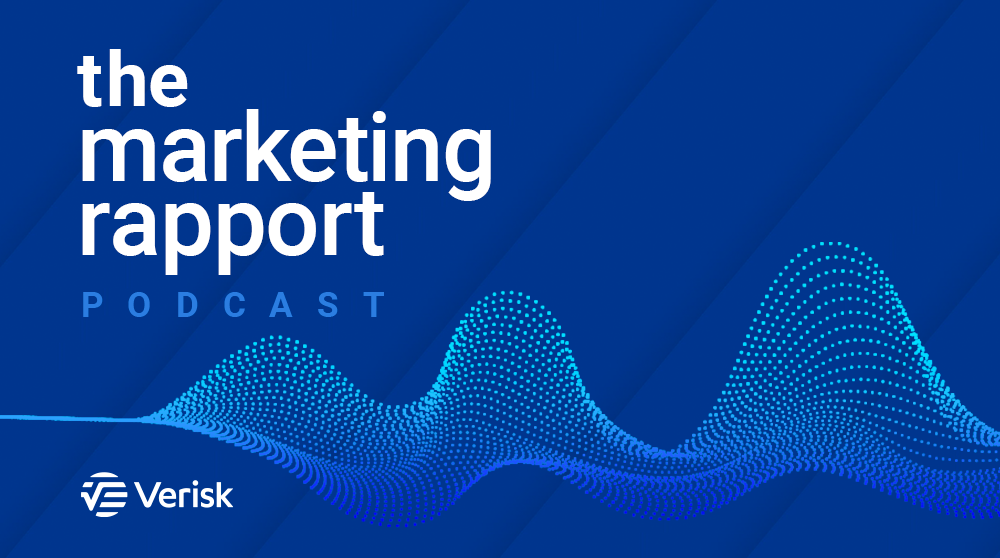Academics Uncover the Value of Consumer Data in the U.S. Economy
Just how much value does consumer data bring to the U.S. economy? What might the future of advertising look like amid escalating privacy regulations and concerns? Can smaller brands survive, let alone thrive?
These are among the questions explored in this academic-forward Truth & Trends discussion led by Christine Frohlich, Head of Data Governance at Verisk Marketing Solutions. Professors and researchers joined Christine to discuss the rapid growth of the data marketplace, the value of data-driven marketing, and potential threats to both.
Watch the full discussion now
Consumer Data Driven Advertising as an Asset
While discussing the expanding patchwork of state privacy laws focused on consumer data, the panelists dispelled the notion that data-driven advertising is somehow “bad.”
In fact, they noted, data-driven advertising deserves credit for a substantial amount of content on the open internet. It lets everyone share more information, makes markets more competitive, keeps prices in check, and drives innovation. Advertising has even helped more people stay healthy, whether by promoting the benefits of a fiber-rich diet or encouraging safe practices during the pandemic.
Consumer Data Levels the Playing Field
Consumer data functions as a great equalizer. Panelists cited studies across platforms like Facebook and Google showing patterns of personalization that enable smaller advertisers to compete with larger brands.
On the flipside, the loss of third-party cookies negatively impacts smaller players approximately five times as much as larger brands. And one study in Europe showed that, as a result of tighter GDPR data restrictions, smaller ecommerce sites lost more than twice the revenue of their larger counterparts.
What Legislators Are Getting Wrong
In creating consumer privacy regulations, legislators often claim that personalization via fluctuating pricing may be discriminatory. However, the panelists argued it may be more unfair to prevent people from accessing certain features and benefits due to affordability. Like the federal tax system, personalized pricing could be progressive.
Panelists also suggested that policy makers lack some awareness of the true issues and complexity of the interactions they’re regulating. They often rule differently for the use of first-party data versus third-party data, when in reality there’s little to no difference when it comes to privacy.
Some laws, panelists noted, seem to target specific companies rather than practices—including the digital titans currently unpopular with voters.
Looking Ahead
Asked about a future that restricts brands’ use of consumer data for personalization, panelists envisioned a bleak landscape that once again disproportionately affects smaller advertisers. Consumer data allows smaller ventures to build brands on a budget and to target their marketing more effectively. Without access to consumer data, we would go back to a world where the same big brands dominate their categories with no disruption and little innovation.
What can be done to help prevent such a future? Spread awareness, panelists said. Many people aren’t aware that advertising content supports free internet and email services. Making connections like these clear to consumers and policy makers is the key to moving forward.
Watch the full panel discussion now on-demand.
Want to learn how you can solve these challenges for your organization? Verisk Marketing Solutions can help enhance your consumer data, compliance, and ability to future-proof your ability to personalize all outbound interactions to customers and prospects based on identity attributes and behavior.







 Your Privacy Choices for Platform Services | Data Services
Your Privacy Choices for Platform Services | Data Services